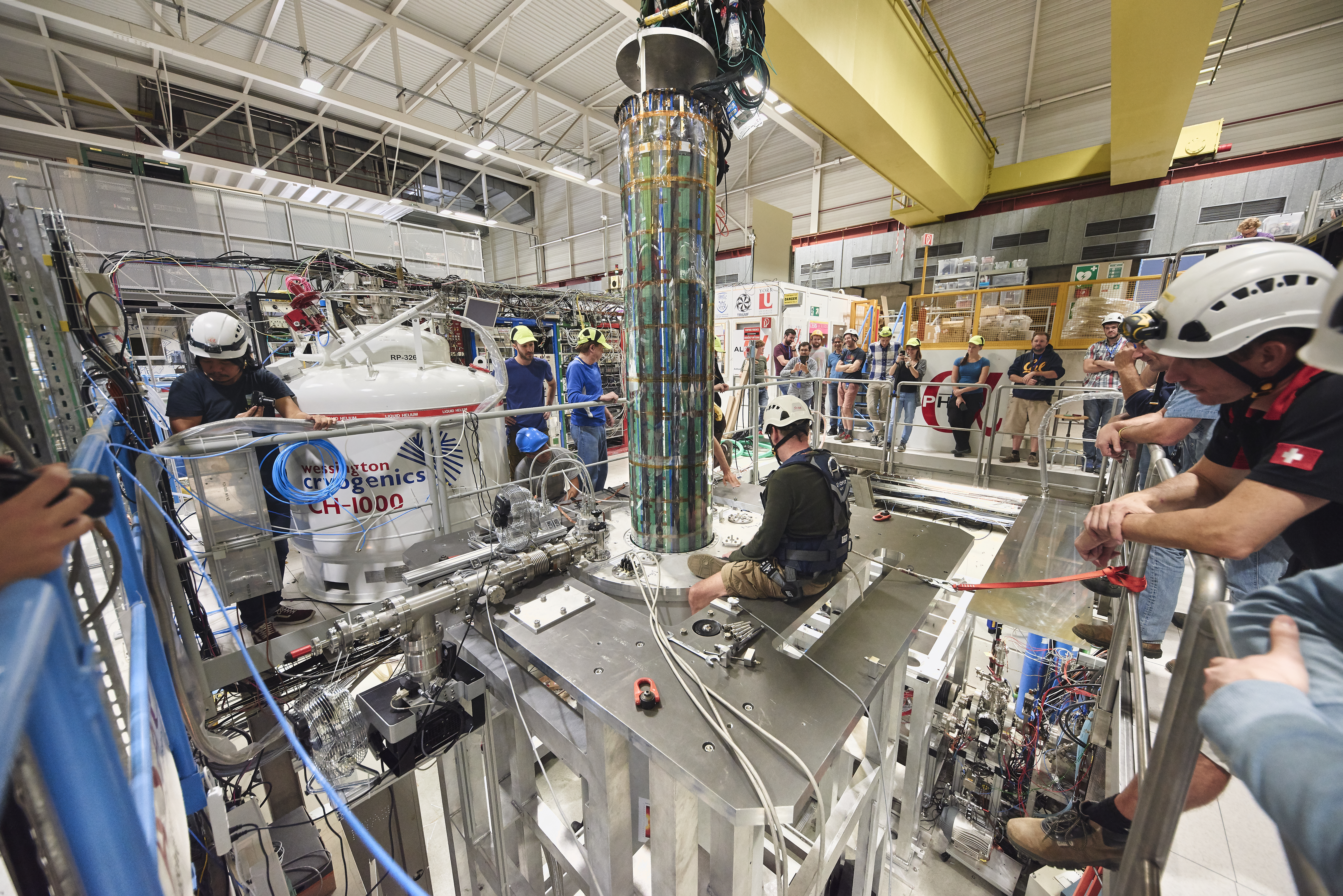Does antimatter fall up or down? Physicists observe the first gravitational free-fall of antimatter

A version of this article was shared by UBC, published here on September 27, 2023.
In the world’s first observation of the effect of gravity on antimatter, a group of researchers from Canada and around the world have made an important confirmation: like matter, antimatter does indeed ‘fall downwards’.
Antimatter is the obscure counterpart to the ‘normal’ matter that makes up our universe. The Antihydrogen Laser Physics Apparatus (ALPHA) collaboration at the European Organization for Nuclear Research (CERN) completed the first direct measurement of gravity’s effect on the motion of antimatter using its new ALPHA-g apparatus. As expected by much of the scientific community, antimatter falls downwards. The collaboration’s findings are published in Nature today.
“Right now, we don’t have an explanation about where all the antimatter in the universe is,” says co-author Dr. Robert Thompson, professor at the University of Calgary and principal investigator of the ALPHA-g Canada Foundation for Innovation project. “To find a solution for this conundrum, what we do is test the elements of physics of antimatter to see if we can find an inconsistency. In this case, we tested to see if the gravitational characteristics of antihydrogen mirror those of hydrogen, which is significant because it’s never been done before.”
Researchers from UBC, TRIUMF, SFU, BCIT, University of Calgary, and York University (ALPHA-Canada) built the ALPHA-g antimatter gravity detector at the TRIUMF facility. The 2.5 metre detector was shipped and installed at CERN and cooled to near-absolute zero. Then, after creating antimatter and trapping neutral antihydrogen atoms in a magnetic bottle, physicists released the antihydrogen within the vertical apparatus to witness and measure its gravitational behaviour.
Why does it matter?
For physicists, our matter world is quite a conundrum. The theories that describe particles and forces in our universe point to a near-perfect symmetry between matter and antimatter, and that the Big Bang should have created both in equal parts – but our universe is made only of matter.
Testing the physics of antimatter with precision may provide a smoking gun as to where all the antimatter went.
“If our universe is made only of matter, this means that the Standard Model of Particle Physics must have some deficiencies – there’s something missing that we haven’t yet discovered,” said co-author Dr. Takamasa Momose, professor in the UBC department of chemistry, physics & astronomy and TRIUMF affiliate scientist. “By studying antimatter, we can find out what that reason is, which would have a profound impact on our understanding of the universe.”
The results mark a critical advancement in ALPHA’s decades-long program of antimatter research, which began with the trapping of antihydrogen for a world-record one thousand seconds in 2011. The collaboration also provided a first glimpse of the antihydrogen spectrum in 2012, set guardrails confining the effect of gravity on antimatter in 2013, and showcased an antimatter counterpart to a key spectroscopic phenomenon in 2020.
“This milestone is a culmination of nearly 20 years of dedication and teamwork. It was enabled by TRIUMF’s network of experts and infrastructure – simply put, it couldn’t have been built anywhere else in Canada,” said co-author Dr. Makoto Fujiwara, TRIUMF senior scientist and ALPHA-Canada spokesperson. “In addition, the contributions of the members of ALPHA-Canada were critical to our success. ALPHA-Canada is a pan-Canadian collaboration made up of a diverse group of students, postdoctoral scholars, academics, and staff members, each of whom played a vital role in this project.”
As Dr. Takamasa Momose explains, "this report is just a first step. With the laser-cooling technique that we developed we will eventually be able to accurately measure gravitational acceleration and compare it to that of matter. If we find any difference between matter and anti-matter gravitational acceleration, it would be a ground-breaking discovery in science. Stay tuned!"
Related Links
- Nature Article
- UBC article
- Dr. Takamasa Momose lab at UBC and faculty pages for UBC Chemistry and UBC Physics & Astronomy
- Dr. Makoto Fujiwara CERN faculty page
- Dr. Robert Thompson's University of Calgary faculty page
Learn More
Media Contact:
Alex Walls, Media Relations Specialist, UBC Media Relations (alex.wals@ubc.ca)